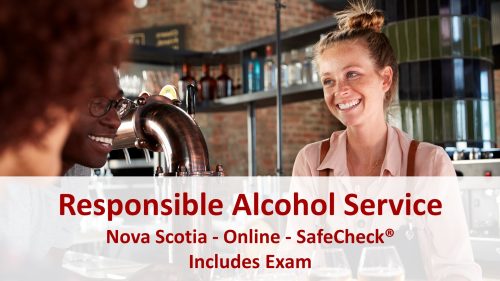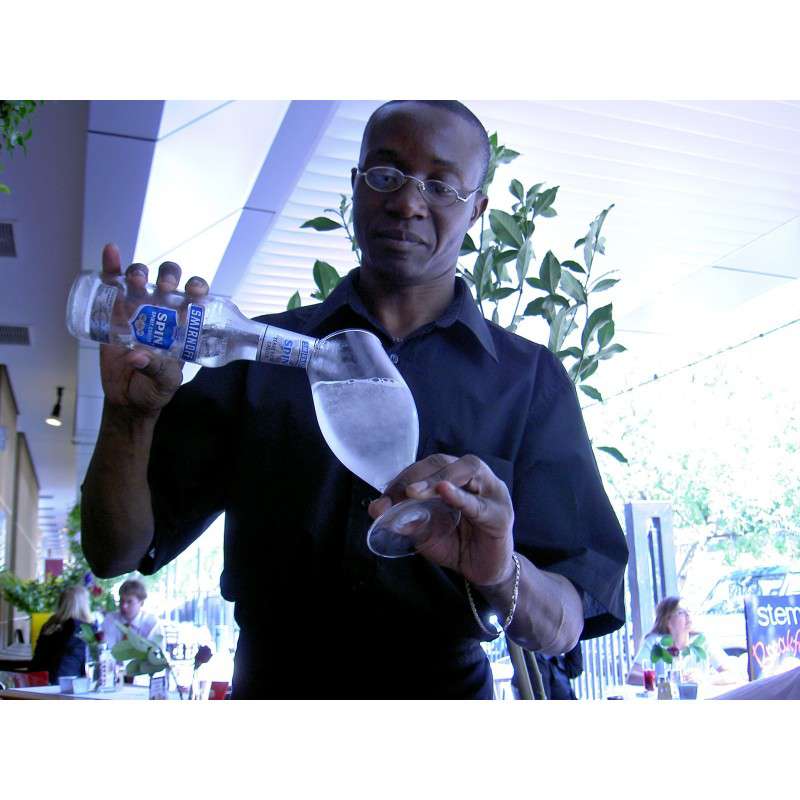Master Liable Alcohol Service With Comprehensive Accreditation Programs
The mastery of accountable alcohol solution is not merely a regulatory need; it is a basic element that enhances the credibility and operational stability of facilities within the hospitality sector. Comprehensive qualification programs offer invaluable insights right into local legislations, efficient treatment methods, and customer engagement approaches. By investing in these training efforts, companies can foster a society of obligation amongst their staff, mitigating threats and improving consumer contentment. Nevertheless, the course to efficient execution and its lasting benefits may not be as uncomplicated as it seems. What obstacles lie in advance for those that seek to raise their service criteria?

Importance of Liable Alcohol Solution
Accountable alcohol solution is vital to advertising public health and security in establishments that offer liquors. It encompasses a range of practices created to stop the overconsumption of alcohol, decrease the danger of alcohol-related damage, and make certain a safe environment for clients and team alike. By maintaining responsible solution requirements, facilities can minimize potential occurrences of drunkenness, which may result in accidents, physical violence, or other unfavorable results.
In addition, liable alcohol solution improves the general consumer experience. Customers are more probable to go back to facilities that prioritize their safety and security and wellness. This commitment cultivates a positive credibility, encouraging referral references and repeat service. In addition, establishments that follow liable solution techniques often experience lower insurance coverage costs and decreased legal responsibilities.
In addition, applying accountable alcohol solution practices aligns with wider public health efforts targeted at lowering chemical abuse and advertising neighborhood wellness. This proactive method not just shields individual clients however additionally contributes to a healthier culture. Eventually, responsible alcohol solution is not merely a legal responsibility; it represents an honest dedication to the wellness of clients and the community at huge.
Secret Components of Certification Programs
Accreditation programs for responsible alcohol service commonly include a number of key elements developed to outfit staff with the essential abilities and expertise to serve alcohol securely. Most importantly, these programs frequently consist of comprehensive training on neighborhood and state alcohol legislations, making sure that individuals understand their lawful commitments and the repercussions of stopping working to comply.
One more essential element is the recognition of indications of intoxication - servsafe food handlers card. Staff are educated to acknowledge behavioral signs indicating when a customer might be over-served, enabling them to step in suitably
Additionally, efficient communication approaches are highlighted, educating staff how to engage with consumers in a manner that promotes liable drinking. This consists of training in dispute resolution strategies, enabling personnel to take care of tough scenarios steadly and expertly.
Furthermore, programs regularly incorporate useful circumstances and role-playing exercises, giving individuals with real-life examples to practice their abilities. Recurring education and resources are necessary for maintaining expertise and abilities over time, as regulations and finest practices evolve. Together, these parts create a detailed framework that equips personnel to cultivate a more secure drinking environment while decreasing responsibility for establishments.
Advantages for Personnel and Facilities
Personnel and facilities alike gain significant benefits from taking part in liable alcohol solution certification programs. For personnel, these programs boost expertise and abilities associated with alcohol solution, outfitting them to identify signs of drunkenness and implement efficient treatment approaches. This training not only promotes a sense of self-confidence among staff members but also advertises a culture of safety and responsibility in the work environment.
For establishments, purchasing certification programs can result in reduced responsibility and fewer occurrences associated with over-serving. By guaranteeing that staff are well-trained in accountable service methods, establishments can alleviate dangers related why not look here to alcohol-related events, thereby safeguarding link their credibility and monetary stability. Many jurisdictions offer rewards, such as lower insurance coverage premiums, for certified establishments.
Additionally, carrying out qualified practices can enhance consumer contentment and commitment. Clients are more probable to return to venues that prioritize their safety and health. Eventually, a dedication to responsible alcohol service not only grows a favorable setting yet also enhances the total functional efficiency of establishments, making it a smart investment for lasting success in the friendliness industry.
Usual Challenges in Alcohol Solution
Making certain effective alcohol solution is not without its obstacles, also in facilities committed to accountable practices. One significant obstacle is the requirement for personnel to precisely assess patrons' alcohol usage degrees. servsafe food handlers card. This calls for an eager understanding of how numerous variables, such as food intake, resistance, and specific differences, influence intoxication
Additionally, the stress to make the most of sales can contravene accountable solution protocols. Employees may deal with problems in refusing service to inebriated individuals, specifically in social atmospheres where peer pressure and assumptions prevail.
One more challenge is remaining upgraded with local regulations and policies concerning alcohol service. Conformity is important, yet frequent modifications in legislation can create confusion and might result in inadvertent violations.
Training programs may not always cover the nuances of real-world circumstances, leaving team ill-equipped to deal with complex scenarios. Irregular communication between management and staff members regarding assumptions for liable service can further exacerbate these concerns.
To navigate these challenges successfully, facilities have to promote an atmosphere of assistance, highlighting the importance of liable solution while offering the essential devices and training for staff to be successful.
Actions to Acquire Accreditation
To obtain Liable Alcohol Solution Accreditation, applicants usually start by researching the particular demands mandated by their neighborhood governing authorities. These needs might differ dramatically depending upon the region, so it is necessary to acquaint oneself with the pertinent legislations and guidelines.

After selecting a program, candidates should finish the requisite training, which normally covers subjects such as determining intoxication, understanding legal duties, and executing strategies for accountable service. Individuals should actively involve with the material, as this knowledge is vital for effective alcohol service.

Adhering to training, prospects generally take an examination to assess their understanding of the material. Successful conclusion of this important link analysis results in accreditation.
Verdict
To conclude, grasping responsible alcohol solution through comprehensive accreditation programs is important for promoting safety and security and boosting client experiences within the hospitality market. By gearing up personnel with the essential expertise and skills, establishments not only alleviate dangers connected with overconsumption and legal responsibilities yet likewise grow a society of duty. This commitment to accountable solution eventually brings about boosted consumer commitment and functional success, reinforcing the significance of ongoing training and adherence to alcohol service requirements.